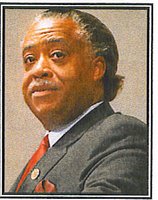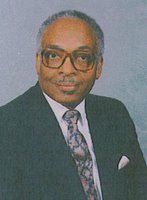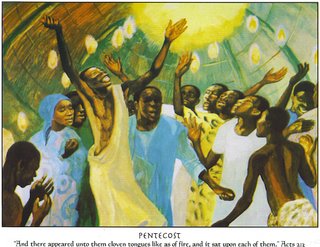By: Angela Lee Price

When I was the Voter Empowerment Coordinator for St. Stephen Church in 2004-2005, Frank Watkins, Congressman Jesse Jackson, Jr.'s press secretary, and I exchanged several e-mails regarding the expiration in 2007 of sections of the 1965 Voting Rights Acting. He forwarded an excerpt from the book,
A More Perfect Union by Congressman Jesse Jackson, Jr. Below is an excerpt from his original excerpt to me. It explains Sections Four and Five of the Voting Rights Act, the sections that are set to expire in 2007.
To read the latest developments surrounding passage of the Voting Rights Act, click on
BlackNews.com. Be sure to read Earl Ofari Hutchinson's article,
Voting Rights Peril No Longer A Hoax.
------------------------------------
Excerpt from the book,
A More Perfect Union,
By: Congressman Jesse Jackson, Jr.:
The Voting Rights Act (VRA) was enacted in 1965 to end Jim Crow laws and practices that prevented blacks from voting mainly in southern states. Most sections of the act were permanent, but Section Four was set to expire in 1970. Section Four defines which political subdivisions are subject to restrictions outlined under Section Five. Without Section Four, Section Five has no effect.
Specifically, Section Four declares that a state or other political subdivision is subject to Section Five if: "(a) it maintained a test or device as a condition for voter registration on November 1 of 1964, 1968, or 1972; and (b) either less than 50 percent of those citizens of legal voting age were registered to vote or less than 50 percent of such citizens voted in the presidential election held in the year in which it used a test or device." "Test or device" includes such instruments as literacy, educational achievement, and good moral quality tests. Section Four also provides that states can be exempted from Section Five if they can meet a strict standard of nondiscrimination in voting practices during the previous ten years. Sections Four and Five are the only temporary sections in the act.
Section Five applies only to those states with a history of using discriminatory voting procedures as defined in Section Four. Under Section Five, covered jurisdictions must submit any proposed voting procedure or election law changes to the Federal District Court for the District of Columbia, or the U.S. attorney general, for what is commonly called "preclearance." The covered jurisdiction must prove that the proposed change does not have the intent or effect of discriminating against any minorities. If the jurisdiction does not meet this burden, the proposed voting procedure or election law change cannot take effect. The expiration of Section Four would end Section Five federal preclearance for covered states that seek to change their election procedures.
Originally only applied to southern states, in 1970 Congress extended Sections Four and Five for five years and expanded coverage to all states. In 1975 Congress extended these sections for another seven years, while expanding coverage to protect the voting rights of ethnic groups whose language is other than English. In 1982, Congress again extended Sections Four and Five, this time for twenty-five years - through 2007. The 1982 extension also expanded federal oversight of state voting procedures.
The heart of the VRA is Sections Two, Four and Five. Section Two outlaws all forms of voter discrimination and allows states and individual citizens to challenge discriminatory voting procedures enacted by states (like Jim Crow laws). To challenge a voting practice, a plaintiff need only show that the voting practice has a discriminatory result, not that a discriminatory intent existed when the policy was implemented. Section Two applies to all states and citizens. Section Two also served as the impetus for the creation of equal opportunity minority political districts. However, some of those districts have subsequently been interpreted as unconstitutional by a "strict constructionist" and conservative Supreme Court using narrow interpretations.
Writing for the majority in City of Mobile v. Bolden (1980), Justice Potter Stewart argued that "racially discriminatory motivation is a necessary ingredient of a Fifteenth Amendment violation." So when the VRA came up for renewal in 1982, the Reagan administration did not so much try to end our protections of nondiscrimination in voting as it tried to weaken the enforcement provisions in Sections Four and Five by ending the preclearance provision. Ending that enforcement mechanism would have made the VRA much less effective. Consistent with Bolden, Reagan also tried to weaken Section Two by changing the criteria for court-determined voter discrimination by altering the standard of proof from "effect" to "intent." Proving intent is obviously more difficult, time consuming, and costly than proving effect. But in renewing and extending the VRA in 1982 for twenty-five years, Congress preserved the preclearance provision and insisted that the standard in voter discrimination cases was proof of a "discriminatory effect," not a "discriminatory intent." Such attempts at weakening the VRA must be resisted now and into the future.
Because Section Two is permanent, any election procedure with a discriminatory effect would continue to be illegal and could be challenged by an individual citizen or the federal government. In conjunction with the Fifteenth Amendment to the Constitution outlawing voter discrimination on the basis of race, color, or previous condition of servitude, Section Two ensures that African Americans will not be denied the federal legal right to vote, even if Sections Four and Five expires in 2007. However, without Sections Four and Five the burden falls to the aggrieved individual to remedy any voting discrimination, rather than the states having an affirmative duty not to discriminate as currently enforced through the preclearance provision.
No provision of the VRA is scheduled to expire before 2007. As the August 6 expiration date nears, Congress will examine the VRA's history and effectiveness and decide whether changes should be made and expiring provisions extended. In each of the last three instances in which Congress considered the VRA, it has strengthened and reauthorized it for an increasingly longer period of time (five years in 1970, seven years in 1975, and twenty-five years in 1982). However, if Republicans are in control of the House, the Senate, or the White House in 2007, and are joined by some conservative or southern Democrats, an effective 1965 Voting Rights Act could definitely be endangered through weakening its Sections Two, Four, and Five provisions. However, the greater immediate danger, before 2007, is a narrow interpretation of an equal opportunity minority political redistricting case by a "strict constructionist" and conservative Supreme Court, which could undermine the effectiveness of the Voting Rights Act.
I do understand the concern of many African Americans that there could be a threat to our voting rights. After all, it was only a little more than thirty-five years ago that southern states used Jim Crow laws and violence to deny blacks the ability to exercise their vote. A majority of African Americans alive today lived in a period where segregation and the denial of constitutional rights to blacks were not uncommon. Until we affirm the right to vote in the Constitution, the only real protection or "guarantee" of protecting our right to vote is to be politically informed with accurate information, and to maximize voter registration and political participation among all Americans. That is the one thing conservatives fear the most!
Remember, it is not Mohammad, Buddha, Confucius, nor New Ages that saves, Jesus saves!








